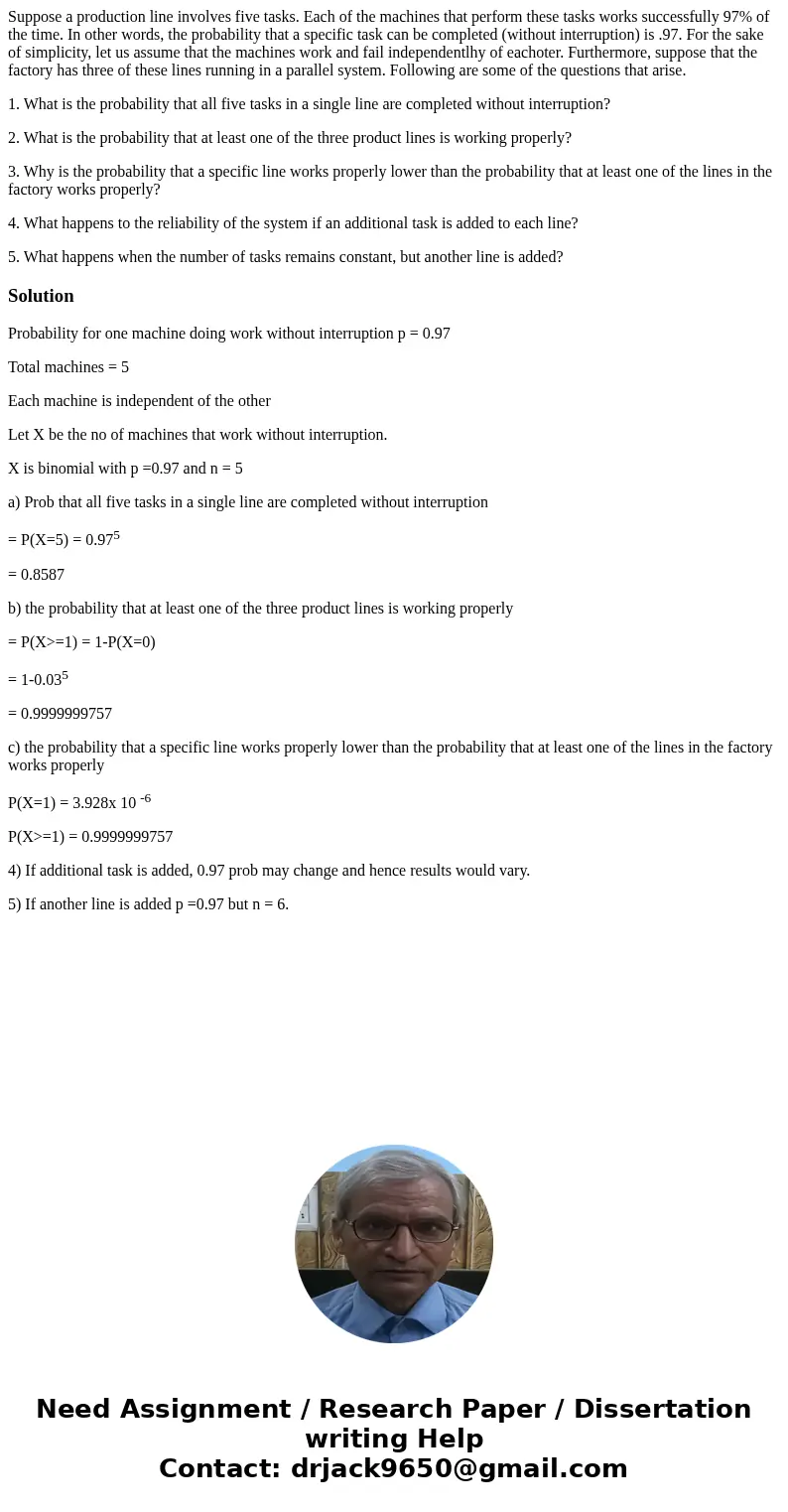Suppose a production line involves five tasks Each of the ma
Suppose a production line involves five tasks. Each of the machines that perform these tasks works successfully 97% of the time. In other words, the probability that a specific task can be completed (without interruption) is .97. For the sake of simplicity, let us assume that the machines work and fail independentlhy of eachoter. Furthermore, suppose that the factory has three of these lines running in a parallel system. Following are some of the questions that arise.
1. What is the probability that all five tasks in a single line are completed without interruption?
2. What is the probability that at least one of the three product lines is working properly?
3. Why is the probability that a specific line works properly lower than the probability that at least one of the lines in the factory works properly?
4. What happens to the reliability of the system if an additional task is added to each line?
5. What happens when the number of tasks remains constant, but another line is added?
Solution
Probability for one machine doing work without interruption p = 0.97
Total machines = 5
Each machine is independent of the other
Let X be the no of machines that work without interruption.
X is binomial with p =0.97 and n = 5
a) Prob that all five tasks in a single line are completed without interruption
= P(X=5) = 0.975
= 0.8587
b) the probability that at least one of the three product lines is working properly
= P(X>=1) = 1-P(X=0)
= 1-0.035
= 0.9999999757
c) the probability that a specific line works properly lower than the probability that at least one of the lines in the factory works properly
P(X=1) = 3.928x 10 -6
P(X>=1) = 0.9999999757
4) If additional task is added, 0.97 prob may change and hence results would vary.
5) If another line is added p =0.97 but n = 6.

 Homework Sourse
Homework Sourse